War
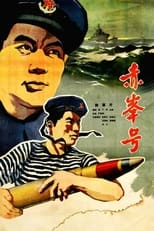
赤峰号
February 1, 1960
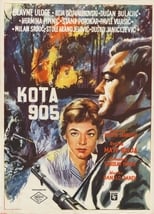
Point 905
January 30, 1960
After the war, a Yugoslav army captain, Vladimir, is in charge of suppressing armed supporters of the former king's regime, led by major Momir. After Vladimir's best friend is killed, he joins the rebels pretending to be one of the king's supporters. However, one of Momir's supporters, a man who harbors rebels, has an attractive daughter who is engaged to marry Momir. She knows that Vladimir is an officer of the Yugoslav army, because she has seen him wearing a Yugoslav uniform. Vladimir fears that she might betray him.

Carthage in Flames
January 29, 1960
Historical drama depicting the last of the Punic Wars between the Roman Republic and Carthage.

The Wandering Princess
January 27, 1960
Pu Zhe, the younger brother of the Emperor of Manchukuo, marries Ryuko the daughter of an aristocratic family. To the surprise of all, a deep love between Pu Zhe and Ryuko develops and is put to the test when Japan loses the war.

La fiel infanteria
January 11, 1960
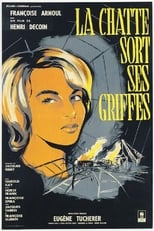
The Cat Shows Her Claws
January 8, 1960
France under the Occupation. Executed for treason against the Resistance, Cora, code-named "La Chatte", was left for dead. Recovered and cared for by the Germans, Dr. von Hollwitz brainwashed her to control her and use her as a counter-espionage. In the spring of 1944, her escape was faked so that she could resume contact with the Resistance. She has to scupper the mission of Charles, an engineer with the SNCF, to blow up a train loaded with V1s intended to power the launch pads set up on the French coast to bomb London. But at the last moment, La Chatte regains her lucidity.
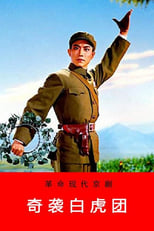
Raid on the White Tiger Regiment
January 6, 1960
This classic revolutionary model opera is based on a true story during the relatively short-term military conflict in which South Korea's best elite troop the White Tiger Regiment, that was a mechanized force fully equipped by the United States and boasted of being invincible (in a typical South Korean manner of bragging and fabricating), was destroyed in a raid.
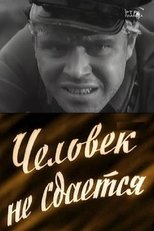
The Man Doesn't Give Up
January 4, 1960
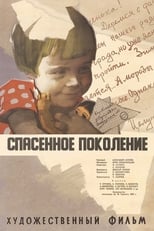
The Rescued Generation
January 4, 1960
Antonina Vasilyevna, as a member of the bureau of the district committee of the party, was instructed to save the Leningrad children, whom the war overtook in the suburban camps. She took them to the Kirov region. After twelve days of hard travel, the children arrived in the village of Supryadki...
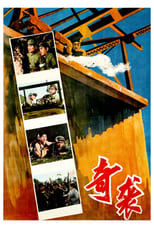
Qi xi
January 2, 1960
To help the Koreans against the imperialist Americans, Feng Yang, a scout for the Chinese army, must take a crack platoon to blow up the Kangping bridge in order to cut off the American retreat/reinforcement and make possible a major assault on American positions.
Smrť sa volá Engelchen
January 1, 1960
The television film based on the novel of the same name by Ladislav Mňaček draws on the period of World War II and the Slovak National Uprising. The film's story is composed of two intertwining time lines. In the images of the present that frame the entire narrative, the young partisan Voloďa - a hero with autobiographical features - recovers from a serious injury. In feverish reminiscences and in conversations with his nurse Eliška, he recapitulates the eventful events of his time in the partisan group in the village of Ploština, which the partisans abandoned under the pressure of events and left to the mercy of the German commando. Voloďa is haunted by visions of the burning Ploština, remorse and responsibility for the tragedy. In feverish reminiscences, he relives the meetings of the partisan detachment with the German commando. Memories of the mysterious Jewish girl Marta, a partisan liaison with whom Pavol had a passionate love affair, also return to him.
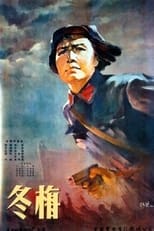
Dongmei
January 1, 1960
Despite being pregnant, A female commissar continues to resist the Japanese invasion and forward the communist cause.

In The Name of Revolution
January 1, 1960
In 1918, shortly after the Soviet Socialist Revolution in October, the Red Army soldier Savelyev went to Moscow and was assassinated by counter-revolutionaries at a small station. The sons Vasya and Misha have just lost their mothers, and now they have lost their fathers, and they have no choice but to wander into Moscow. Lenin and Dzerzhinsky met the two children and took them in and took care of them.
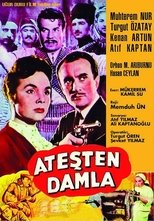
Ateşten Damla
January 1, 1960
The film tells the story of Serap and Ahmet, who fall in love during the War of Independence. Emine commits suicide after giving birth to a baby girl. Osman Müfit, the village teacher, takes the girl under his wing and names her Serap. When Serap graduates from the Girls' Teacher Training College in Istanbul, Anatolia is under occupation. The situation in Balıkesir is no different. On one side is Rıza Bey, the village chief who collaborates with Anzavur, and on the other is Osman Müfit, the leader of the National Forces. Rıza Bey's son Ahmet also joins the national forces and fights against his father. Serap returns to Balıkesir from Istanbul. Serap and Ahmet meet in the midst of the war. These difficult days for the country will bring them even closer together.
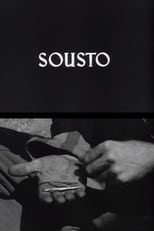
A Loaf of Bread
January 1, 1960
By the end of the second World War, three prisoners wish to escape from the train carrying them from one concentration camp to another. To make it happen, they need to get food first.

The Struggle
January 1, 1960
Devoted to the heroes who fought for their homeland’s freedom in the 1947 Indonesian war of liberation.
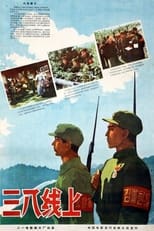
On the 38th Parallel
January 1, 1960
A group of Chinese and North Korean soldiers defend their homeland against American spies who are trying to sneak over the border to gather intelligence.
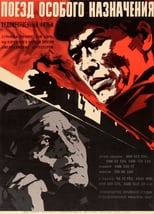
On The Railway
January 1, 1960
Having been arrested by the American forces, a Korean engineer tries to save a North-Korean engine from the possession of the enemy by pretending he is working for them.
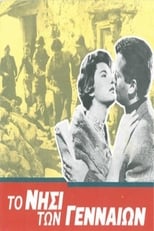
The Island of the Brave
January 1, 1960
An officer in the Greek army arrives in Crete, immediately after the fall in the hands of the Germans. In collaboration with rebels and allies saboteurs involved in sabotage installations of the Germans. The old favorite will ensure some secret documents, which will steal from the German commander, but then betrayal will be revealed and will be led to the firing squad. The young officer would punish will escape in Cairo.
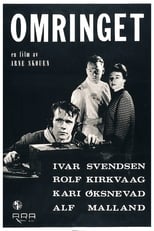
Surrounded
January 1, 1960
The film describes how resistance fighter Knut Magne Haugland operated an illegal telegraph station on the roof of the National Hospital in 1944 during World War II.